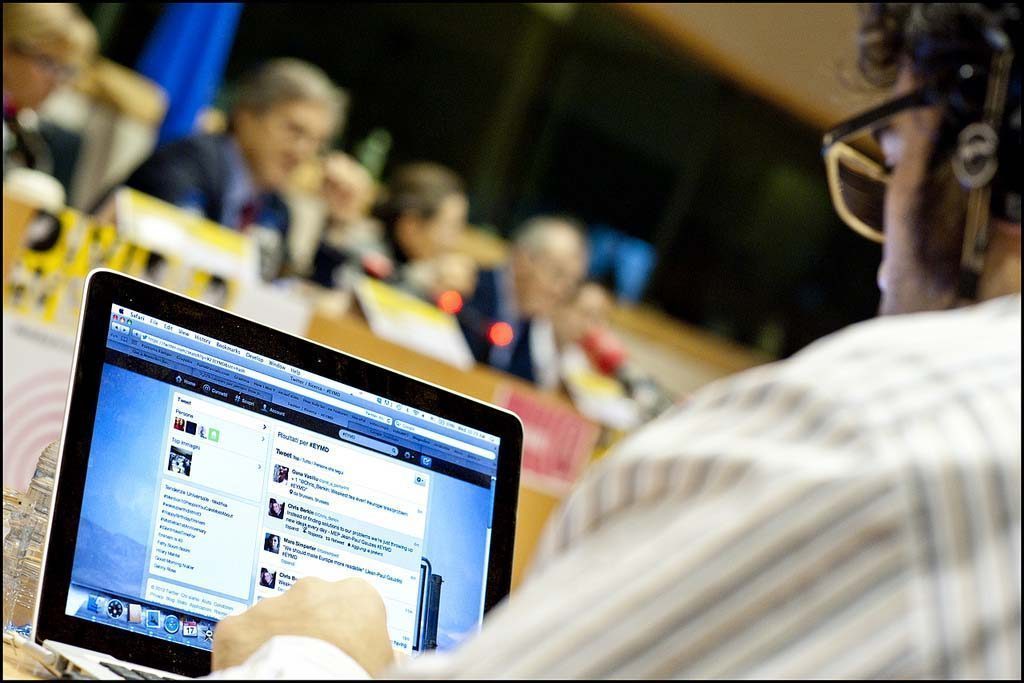
The Ministry of Interior (MOI) has reminded residents that attacking people or violating their privacy online – through email, social media or comments on websites – is a crime in Qatar, and that people can be prosecuted for such actions.
According to statements on MOI’s Twitter account in Arabic, residents can get in trouble even if what they’ve posted is a “joke.”
In a series of tweets, the ministry also advised residents on how to stay safe online, and avoid falling victim to financial scams while surfing the internet. It also called on people to report online violations immediately.
التعدي على الآخرين بالسب والقذف من خلال رسائل البريد الالكتروني، أو المواقع الالكترونية أو غيرها يعد جريمة يعاقب عليها القانون
— وزارة الداخلية – قطر (@MOI_Qatar) December 29, 2015
Translation: Insulting others with libel and slander privately through e-mail, websites or other means is a crime punishable by law.
لتفادي الوقوع في مشاكل يعاقب عليها القانون، ننصح بعدم التعدي على خصوصيات الآخرين حتى وإن كان على سبيل المزاح .. يتبع
— وزارة الداخلية – قطر (@MOI_Qatar) December 29, 2015
Translation: To avoid falling into problems that break the law, we advise (you) not to violate others privacy, even if it’s a joke.
التعدي على خصوصيات الآخرين أو سرقة معلوماتهم وصورهم الشخصية واستخدامها في تحقيق أهدافك الشخصية جريمة يعاقب عليها القانون.
— وزارة الداخلية – قطر (@MOI_Qatar) December 29, 2015
Translation: Violating others privacy, stealing their information and personal photos and using it for personal gain is a crime, punishable by law.
To avoid being scammed online, the MOI offers these tips:
- Don’t download or open any unknown attachment unless it’s from a trusted source, because it could include viruses or spy programs;
- Avoid buying anything from a website that is not credible, or opening any e-mails that offer any financial prize;
- In the case of children, when subjected to any offense on the internet, record evidence of this insult or offense and inform a parent or someone you trust immediately; and
- Report online violations by calling 2347444, 66815757 or e-mai: [email protected].
Court cases
Under Qatar’s cybercrime law and penal code, people could be held liable for statements that could harm someone’s reputation, whether they are made on social media or even through private messages on e-mail or whatsapp.

Last month, in one of the first cybercrime cases prosecuted under Qatar’s law, a female resident was sentenced in absentia to spend six months in jail and pay a QR20,000 fine for insulting her former landlord via whatsapp.
She was apparently upset over being evicted from her home, and called the man several names – including a homophobic slur.
And in May, three expats in Qatar were sentenced to a five-month suspended jail sentence and a QR1,000 fine for defaming their children’s principal and other school officials on Facebook.
The parents were apparently upset about tuition fee increases at the Philippine School Doha and vented their frustrations online. However, they were sentenced under defamation laws, not the new cybercrime legislation.
Cybercrime law
The cybercrime law was approved by the Emir in September of last year, and it states that someone who commits libel or slander of another person online or by using IT equipment can face penalties of up to a year in prison and/or a maximum fine of QR100,000.
Prior to the passage of this law, Qatar’s criminal code already stated that it’s illegal to insult another person in private or use the phone with obscenities that are “intrinsically shameful.”
The new law also requires telecommunications providers – which right now are Ooredoo and Vodafone – to comply with all prosecutorial requests for evidence.

Additionally, service providers must “block any websites or links when asked by judicial entities.
They have to keep users’ information for a year and temporarily keep record of electronic information, traffic data or content information for 90 days that can be renewed at the request of the investigating entity.”
Matt Duffy, who is an expert on journalism and media law in the Middle East, previously told Doha News that threats of jail time are “pretty out of alignment with how many international courts are handling defamation these days.”
He suggested leaving such matters to the civil court system, which deals with private disputes between individuals and could levy financial penalties large enough to dissuade others from making harmful, public statements about identifiable individuals.
Law experts previously told Doha News that this law could also penalize those who post pictures and videos of victims of accidents on social media or pictures related to others personal lives, without their or their families’ approval.
Thoughts?







